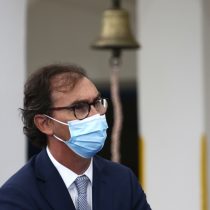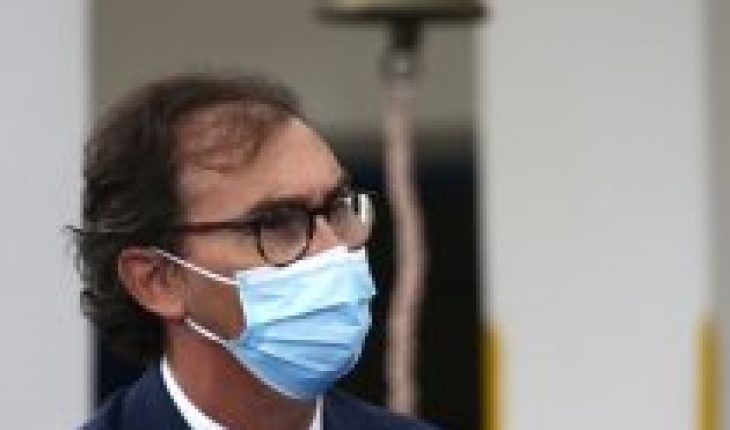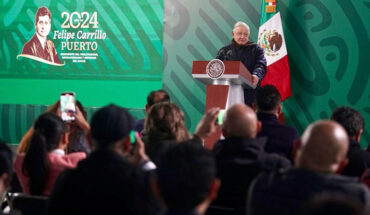
Minister Figueroa went from attacking the threat of suspending subsidies to force mayors to open schools. The idea did not go well in opposition and even from the PS they warned of the filing of a constitutional accusation.
Parents and guardians joined the criticism yesterday and launched themselves against the mineduc chief, for his insistence on returning to face-to-face classes. “We don’t trust this authority,” they said from the Parent and Guardian Coordinator for the Right to Education (Corpade).
Today, mayors came to the pressure of the Minister of Education. Through a public statement, they expressed their total rejection of “economic pressures” against the supporters and teachers and expressed solidarity with both sectors, “who must have overcome the onslaught of the pandemic and the constant improvisation of Mineduc”.
Among the signatories of the letter is Tomás Vodanovic, elected mayor of Maipú; Daniel Jadue de Recoleta, Claudio Castro de Renca, Macarena Ripamonti elected in Viña del Mar, and Jorge Sharp de Valparaíso.
The Ediles say that “with the high numbers of positivity and contagion in the country and the collapse in the ICU, Minister Figueroa, confuses the public because it is impossible to foresee what the health situation will be in the colder months of the year.”
In the face of this situation, mayors undertake to “act accountably, without pressure and by observing the data of the territory as a whole and in coherence with the participation of local educational communities”. In this context, they said they will continue to have telematics activities—despite the problems of coverage and Internet access in many remote schools—”but also to maintain sync with all educational establishments. Not because of the minister’s anxiety, we’re going to put children and adolescents at risk.”
However, signatories come together to continue to agree, with all educational communities, on the conditions and opportunities for face-to-face return to classes, “because we understand the physical and mental health risks of children and adolescents by not attending the establishments.”
“We will work on concrete actions to provide connectivity and devices to students who do not have equipment to effectively develop online classes, as well as methodological procedures to strengthen learning, including formative and summary assessments,” they said.
At the same time, they demanded “proactivity” from Minister Figueroa, as “the face-to-face class strategy will continue to fail to maintain the pandemic in the world. likewise. we ask that innovations be sustained in the pedagogical relationship with the aim of improving the educational experience.”
“We call on the minister to resolve the conflicts to come – with the creation of the new Local Education Services – as are the debts that corporations have.”
The call is also to the educational authorities “to deploy participatory processes in communities and to set up work tables with the aim of collecting experiences and opinions of the territory. Also, generate improvement plans to address the infrastructure deficits that are necessary for the return to classrooms. In this regard, we regret the decline of public education support funds (FAEP) that allow financial processes to be standardized and infrastructure repaired.”
Finally, they extended the call to all municipalities in the country to “strengthen telematics strategies and educational prevention processes for return to face-to-face classes, but that when the time comes it will be a diversified return and in line with the reality of each educational community”.
Similarly, they noted that elected and in-office mayors and mayors, whose educational establishments are based in local services, make the same call “to put the life and safety of the student community first.”
Sign:
Gerardo Espíndola, Mayor Arica.
Francisco Riquelme, mayor-elect of Casablanca.
Mauro Tamayo, mayor of Cerro Navia.
Felipe Muñoz, elected mayor of Central Station.
Gonzalo Durán, mayor of Independencia.
Claudia Pizarro, mayor of La Pintana.
Javiera Reyes, elected mayor of Lo Espejo.
Gonzalo Montoya, mayorMacul’s.
Tomás Vodanovic, elected mayor of Maipú.
Emilia Ríos, elected mayor of Auñoa.
Paulina Bobadilla, elected mayor of Quilicura.
Daniel Jadue, mayor of Recoleta.
Claudio Castro, mayor of Renca.
Cristóbal Labra, mayor of San Joaquin.
Erika Martínez Osorio, elected mayor of San Miguel.
Luis Valenzuela, elected mayor of Tiltil.
Carla Amtmann, elected mayor of Valdivia.
Macarena Ripamonti, elected mayor of Viña del Mar.
Jorge Sharp, mayor of Valparaiso.





